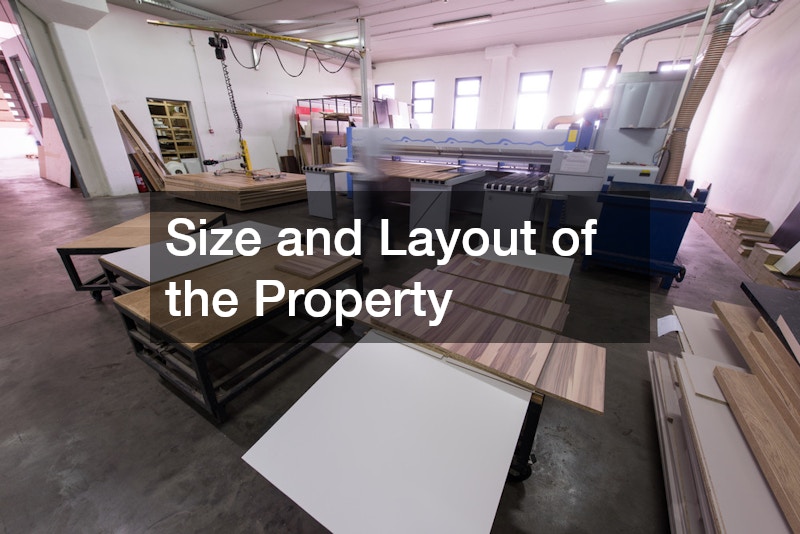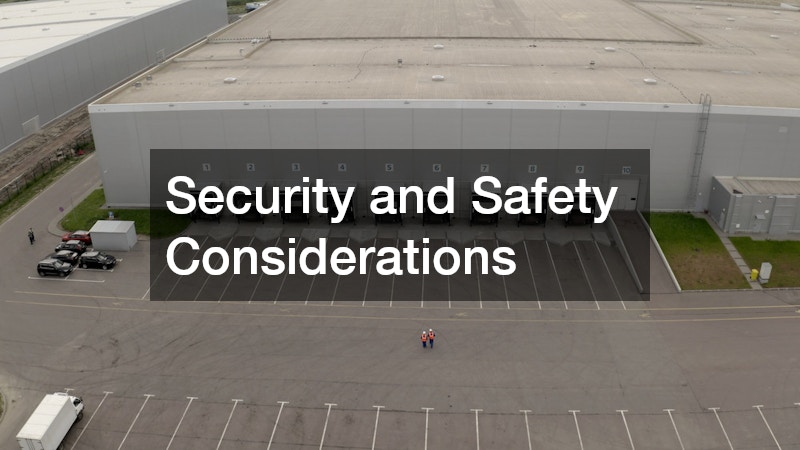When you’re looking to grow your business, one of the most significant decisions you’ll make is whether to purchase a commercial property. Owning your own property can be a rewarding long-term investment and provide numerous benefits for your company’s stability and growth. However, as a commercial property owner, you must consider a wide range of factors before making the commitment. Choosing the right property can set your business up for success, while the wrong choice could lead to unexpected costs, operational challenges, and even limitations to growth.
The process of purchasing commercial property can be overwhelming, but it doesn’t have to be. By understanding key considerations such as location, zoning, property condition, and financial implications, you can make an informed decision that best suits your business’s needs. This guide will take you through the critical factors to keep in mind as you purchase a commercial property and outline what to look for in order to maximize your investment.

Location: A Critical Factor for Business Success
Perhaps the most significant decision in buying a commercial property is its location. Whether you’re a commercial property owner in the retail, industrial, or office sector, the right location can attract customers, clients, and talent, while a poor location can hinder your business growth. Here’s why location is so important:
Proximity to Target Market
The location of your business determines how easily customers, suppliers, and employees can access your property. A commercial building for sale in a high-traffic area or a business district with a strong presence of your target demographic could be ideal. For example, if you’re operating a commercial greenhouse, being in a location with good climate conditions or near suppliers may significantly enhance your productivity and client base.
Accessibility for Employees and Clients
As a commercial property owner, one of the first considerations should be how accessible the property is. Is it easy to reach by car or public transportation? Does the area offer adequate parking for clients and staff? If you plan on housing employees or hosting clients regularly, these factors are crucial. Accessibility also includes the proximity to essential amenities like restaurants, hotels, and banks. If you’re considering commercial moving services for an office or warehouse relocation, ease of access will make the transition smoother.
Competitor and Industry Hub Considerations
Before buying a commercial property, it’s important to research if your competitors or other similar businesses are nearby. Being close to your competitors can have advantages, especially in customer-facing industries. For example, a location near other commercial property owners in the retail sector can create foot traffic for your business. Similarly, for manufacturing or logistics companies, choosing an area near suppliers and partners will provide operational efficiency.
Zoning and Local Regulations
Understanding local zoning laws and building codes is a vital part of the property purchasing process. Zoning laws regulate the types of activities that can take place on a specific piece of land, and these can vary significantly by location.
Zoning Laws
Before purchasing a commercial property, it’s essential to verify that the property is zoned for your intended use, whether it’s for industrial, office, or retail purposes. For example, if you want to set up a commercial greenhouse, you must ensure the land is zoned for agricultural or commercial farming. Different regions and municipalities have different regulations, and violating these could result in fines or being forced to relocate.
Building Codes and Permits
Every city or county has specific building codes that ensure safety and functionality. As a commercial property owner, you must adhere to these codes when performing renovations or setting up new operations. Understanding these regulations beforehand can prevent costly surprises. For example, you may need to install an automatic fire sprinkler design in a commercial space, depending on the property’s size and occupancy type.
Compliance with Environmental Regulations
In some areas, there may be environmental regulations that affect your property. If your business involves certain operations, such as food processing, manufacturing, or commercial pest control services, ensure the property is compliant with environmental laws. Some properties may have pre-existing environmental concerns, such as water contamination or soil erosion, which could complicate your use of the land.

Size and Layout of the Property
As a commercial property owner, the size and layout of the property are essential. You’ll need to ensure the property has enough space for your business operations, both now and in the future. Here are some key considerations:
Adequate Space for Current and Future Needs
Whether you’re running a warehouse, an office, or a retail location, the property should offer enough room for your immediate needs. For example, if you’re purchasing a warehouse, ensure there’s sufficient space for heavy duty racks to store products, equipment, or inventory. It’s also important to think ahead—will this space accommodate your business as it grows? If you’re in a fast-growing industry, you’ll want the flexibility to expand. It may be worth it to buy new storage containers for sale in the area!
Floor Plan and Design
The layout of the building plays a key role in your daily operations. Does the commercial building for sale have an open floor plan, or will you need to make significant changes to the layout? A well-designed space can make your business operations more efficient. For example, a commercial property owner with an industrial business may require high ceilings for storage or specialized equipment, such as heavy-duty racks or industrial shelving units.
Potential for Expansion
Consider the possibility of expanding your operations in the future. Does the property have extra land or nearby lots that could be acquired for future growth? Being able to expand or make modifications to your property could be crucial for scaling your business down the road. If your business requires outdoor space, such as for a commercial greenhouse, you’ll need a property with enough outdoor space for future growth.
Condition of the Property and Building
Before making an offer on any commercial property, it’s essential to evaluate the condition of the building. You don’t want to inherit expensive issues that could eat into your investment. The following factors are vital:
Structural Integrity
As a commercial property owner, you’re responsible for the long-term health of the property. Ensure the building is structurally sound—check the foundation, walls, and roof for any visible damage. If you’re buying an older property, make sure it has been maintained regularly. A well-maintained building will save you money in the long term by avoiding costly repairs.
Age of the Building
The age of the building is another factor to consider. Older properties may come with charming historical features but could require significant upgrades, such as commercial flat roofing replacements or updated plumbing and electrical systems. Assess whether the property’s age aligns with your business’s goals and how much money you are willing to invest in maintaining or renovating it.
Necessary Repairs and Renovations
Before committing to a commercial property purchase, get a professional inspection to identify any issues that may not be immediately visible. For instance, the property might need significant renovations, such as replacing old windows, doors, or adding more efficient HVAC systems. If you’re considering installing heavy-duty racks for storage, you’ll need to ensure the building’s foundation can handle the additional weight.

Financial Considerations
Purchasing a commercial property is a significant investment that requires careful financial planning. Here are key financial factors to consider when making your decision:
Price and Affordability
The price of the property should align with your budget and financial goals. As a commercial property owner, you must ensure that the property is affordable, not just in terms of the purchase price but also in long-term maintenance costs. When calculating your budget, include operational costs like property taxes, insurance, and utilities.
Property Taxes and Ongoing Expenses
In addition to the upfront cost of purchasing a property, it’s important to consider ongoing expenses such as property taxes, maintenance, and repair costs. Make sure you budget for these recurring costs and account for them when determining your profitability.
Financing Options
There are several financing options available to a commercial property owner. Many business owners secure commercial real estate loans to fund their property purchase. Speak with lenders and explore different loan types, including SBA loans, traditional bank loans, or private financing options, to find the best deal for your business’s needs.
Market Trends and Investment Potential
When purchasing commercial property, it’s essential to think about not just your immediate business needs but also the potential for long-term growth. Understanding the market trends can help you make an informed decision:
Real Estate Market Trends
Before purchasing a property, research the real estate market in the area. Is it a buyer’s or seller’s market? Are property values trending upward or downward? Understanding these market trends can help you anticipate the potential value of the property in the coming years and ensure your purchase is a smart long-term investment.
Appreciation Potential
In addition to location, look at the property’s appreciation potential. A well-located property in an area with growing infrastructure could increase significantly in value. A commercial property owner with a forward-thinking approach may purchase property in an up-and-coming neighborhood, anticipating higher property values in the future.
Rent or Own Decision
If you’re unsure whether buying a commercial property is the best option, weigh the pros and cons of renting versus owning. For some businesses, buying property offers stability and long-term equity growth. For others, renting might be more cost-effective, especially if their business needs are likely to change in the short term.

Security and Safety Considerations
As a commercial property owner, ensuring the safety and security of your property, employees, and clients is paramount. Here’s what to consider:
Crime Rates in the Area
Research the safety of the surrounding neighborhood. A high-crime area could pose a threat to your property and create a hostile environment for customers and employees. It’s also worth considering the potential need for commercial locksmiths to enhance your building’s security features.
Building Security Features
Make sure the property includes sufficient security measures, such as alarm systems, surveillance cameras, and controlled access points. If you’re moving into a commercial property that’s located in a high-crime area, you may want to invest in additional security systems to protect your business assets.
Disaster Preparedness
Consider the risks associated with the property’s location. Does the area experience natural disasters like floods, hurricanes, or earthquakes? Will your business be able to withstand such events, and does the building meet local safety codes? For example, buildings in flood zones may require automatic fire sprinkler designs or reinforced foundations.
Access to Amenities and Infrastructure
Finally, assess whether the property is in close proximity to necessary amenities and infrastructure that can support your business operations:
Nearby Amenities
Being close to essential services can help make your business run smoothly. For instance, if you’re operating a commercial greenhouse, proximity to suppliers or distributors can reduce costs and improve efficiency. Similarly, access to restaurants or cafes can enhance your employees’ convenience and morale.
Utilities and Infrastructure
Ensure that the property has reliable access to utilities such as water, electricity, and high-speed internet. These services are crucial for daily operations, and being in an area with strong infrastructure can provide a significant advantage. Ensure that the commercial property has the capacity for your current needs and any future requirements, such as upgrading power or adding heavy-duty racks for increased storage.
Purchasing commercial property is a monumental decision that requires careful research, planning, and attention to detail. As a commercial property owner, understanding key factors like location, zoning laws, building condition, financial costs, and long-term investment potential can help you make a smart decision for your business.
Take your time to evaluate the property, ask the right questions, and consider your future business growth when making this significant investment. With the right property, you’ll have a strong foundation for your company’s long-term success.
By keeping these factors in mind and ensuring the property meets your needs, you can enjoy the many advantages of owning your own space while minimizing risks and maximizing potential returns. Don’t wait to get in touch with local companies, including ones that can offer managed IT solutions, to make this process easier.



